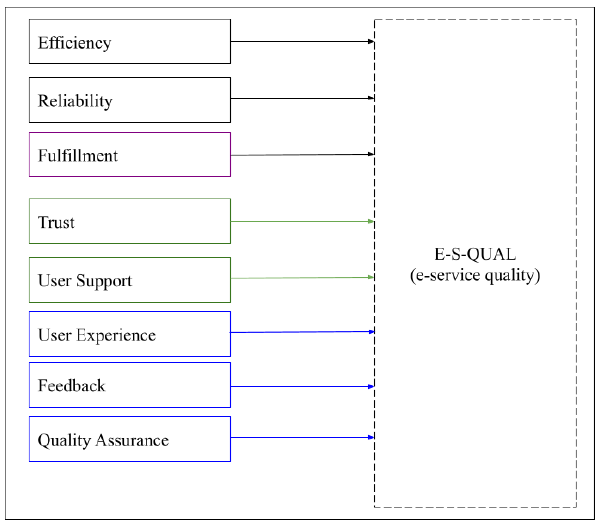Preamble: E-services use information and communication technologies to deliver both government services and private sector services to citizens in order to enhance public service delivery, enhance governance through citizen participation. These e-services are intended to enable creating a better business environment, improving the effectiveness, productivity and efficiency of government agencies, improving the quality of life of citizens, strengthening good governance and broadening public participation in governance. They enable citizens, enterprises and organizations to conduct their business operations with the government more easily, more quickly and at fair costs.
The conceptual model below and the proceeding statements present dimensions that contribute to quality assessment of e-services in resource constrained environments. The conceptual model describes associations between the factors that contribute to quality assessment of e-services with an overall goal of customer satisfaction. Kindly study the diagram and answer the questions that proceed to your capability. Your information provided is strictly for academic purposes and will be handled with utmost ethics. The model variables were tested for the first time in the context of Uganda using data from the customers of National Water and Sewerage Corporation who utilise the e-water payment system to make electronic payments. In case you wish to look at the developed tool again, please click here, otherwise click NEXT to start filling the 2 minutes survey

Detailed Model
There are 14 questions in this survey.